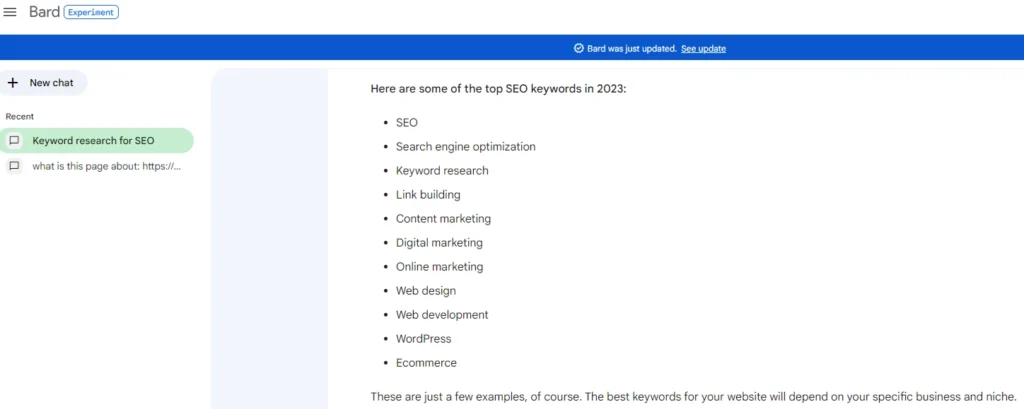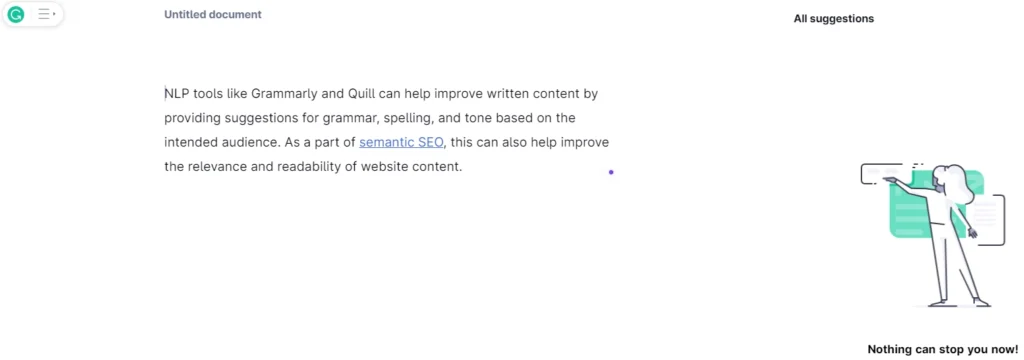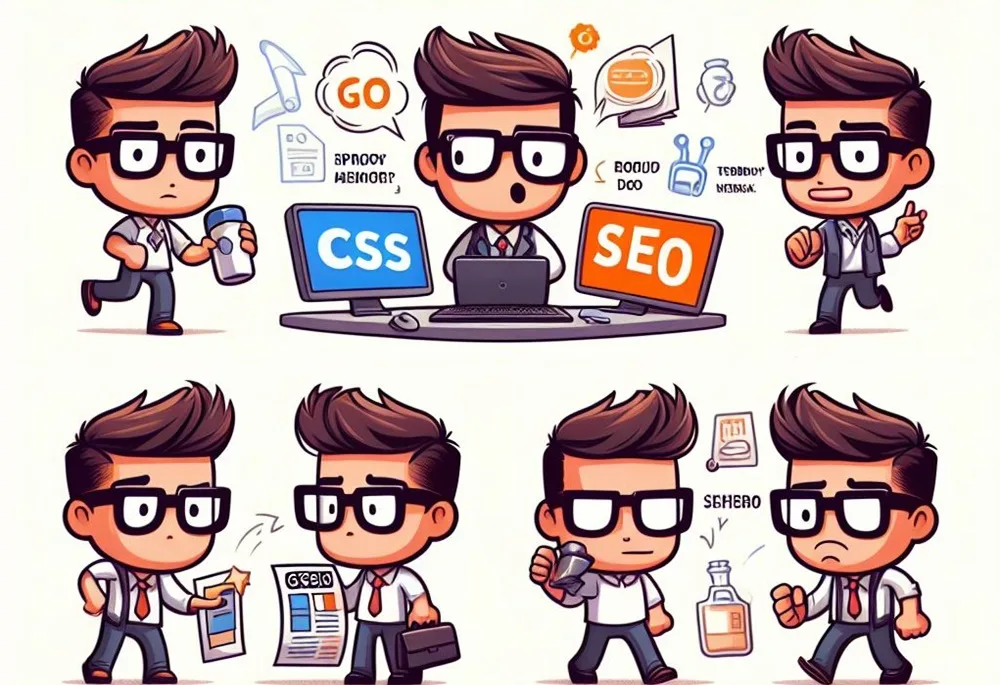Will SEO Be Replaced by AI?

As the digital landscape continues to evolve, the role of artificial intelligence (AI) in various sectors has become a hot topic of discussion, especially in the realm of Search Engine Optimization (SEO).
SEO, a cornerstone of digital marketing, has traditionally been a human-led endeavor, but with the rapid advancement of AI technology, there are growing speculations about whether SEO Be Replaced by AI in the near future.
This article will delve into the current state of AI and its impact on SEO, as well as explore the potential future implications. So will SEO be completely replaced by AI? Let’s find out.
Table of Contents
Is SEO “Dead” Because of AI?
Let’s be straight – AI is not going to make SEO irrelevant or obsolete.
AI can analyze and process large quantities of data at a much faster rate than humans, which can greatly enhance the effectiveness and efficiency of certain SEO tasks.
For SEO services providers, AI technology is almost a dream come true as it can help them automate repetitive tasks, free up time for more creative and strategic work, and ultimately improve the overall optimization process.
However, AI still lacks the human element to understand user intent and create high-quality, valuable content.
SEO is not just about technical optimizations, but also about creating a positive user experience through relevant and engaging content.
So while AI may assist in certain SEO tasks, it cannot replace the creativity and strategic thinking that humans bring to the table.
How Is AI Currently Being Used in SEO?
Currently, AI is being utilized in various ways to improve the performance of SEO. Here are some examples:
Content Creation

AI can generate content based on user inputs and data analysis, but the quality and relevance may still need human intervention.
Tools like Jasper.ai and Ryter assist in creating data-driven content which can save time and effort for SEO professionals.
Technical Audits
AI can quickly scan websites for SEO technical issues such as broken links, duplicate content, and page speed. This saves time and allows SEO experts to focus on more complex tasks.
Data Analysis
AI can process large amounts of data quickly, allowing for more efficient analysis of website performance and user behavior.
For a freelance SEO, this can provide valuable insights for optimizing website content improving overall performance, and saving time.
Keyword Research

AI-powered tools like Googe Bard and ChatGPT can help with keyword research by identifying popular and relevant keywords based on search intent, competition level, and other factors.
This saves time for SEO professionals and allows them to focus on creating high-quality content.
Personalization
AI can analyze user data and behavior to create personalized experiences, such as recommending products or content based on their interests.
Want More Traffic?
Designing and Images
In addition to written content, AI is also being used for designing and optimizing images.
Tools like Midjourney and Adobe Firefly use AI algorithms to create amazing graphics and images that engage users and can save a lot of time and money as well.
Accessibility and User Experience
AI can assist in improving website accessibility for users with disabilities, such as providing alternative text descriptions for images or audio transcriptions for videos.
This not only helps improve user experience but also ensures equal access to information for all individuals.
Moreover, the correlation between accessibility and SEO is becoming more apparent, as search engines prioritize websites that are accessible to all users.
AI A/B Testing
AI-powered A/B testing tools like Google Optimize can help SEO experts determine the best version of a webpage by automatically analyzing user behavior and making data-driven decisions. This saves time and resources compared to traditional A/B testing methods.
SEO Quiz Creator
For those looking to test their knowledge of SEO, several AI tools like Chat GPT, Bard, and Jasper can help with creating quizzes and assessments by providing common SEO interview questions and answers.
Not only can these tools help prepare for job interviews, but they also provide a fun and interactive way to learn more about SEO best practices.
Natural Language Processing for Content Creation

Natural language processing (NLP) is a branch of AI that focuses on understanding and interpreting human language.
NLP tools like Grammarly and Quill can help improve written content by providing suggestions for grammar, spelling, and tone based on the intended audience. As a part of semantic SEO, this can also help improve the relevance and readability of website content.
Why Do Some Think AI is a Threat to SEO?
There are some concerns that AI may pose a threat to SEO in the future. Here are some reasons why:
- Lack of user intent understanding: As mentioned earlier, AI lacks the human element to truly understand user intent and create valuable content. This could potentially lead to irrelevant or low-quality content being produced, which can negatively impact SEO.
- Manipulation of rankings: Some worry that AI could be used to manipulate search engine rankings by constantly generating and promoting low-quality content. This could undermine the credibility and effectiveness of SEO.
- Privacy concerns: AI relies heavily on user data for personalization and optimization. This raises privacy concerns as users may not feel comfortable with their data being used for SEO purposes without their explicit consent.
- Expensive technology: Implementing AI for SEO can be costly, and not all businesses have the resources to invest in such technology. This could create a disadvantage for smaller companies trying to compete with larger ones who can afford to use AI.
- Constantly evolving algorithms: AI is constantly evolving, and search engine algorithms are continually updating to keep up with these advancements. This can make it challenging for SEO professionals to keep up and adapt their strategies accordingly.
- Unpredictable changes: With AI, there is always the risk of unpredictability. As algorithms become more complex and advanced, there is a chance they could make unexpected changes to search engine rankings, making it challenging for SEO professionals to stay on top of their game.
- Lack of transparency: AI algorithms can be difficult to understand and interpret, making it challenging for SEO professionals to determine exactly why certain content ranks higher than others. This lack of transparency could hinder the effectiveness of SEO strategies.
- Ethical concerns: There are ethical considerations that come with using AI for SEO. As algorithms become more advanced, there is a possibility of biased or discriminatory results, which could have negative consequences for both businesses and users.
Future of AI in SEO
Despite the potential challenges and concerns surrounding AI, it is undeniable that this technology has already made a significant impact on SEO.
There is no way back, and the future of SEO will undoubtedly involve AI in some shape or form.
The SEO community should embrace this technology and work towards finding ways to integrate it positively into their strategies.
It could save a lot of time, effort, and money with simple tasks like content and image creation, keyword research, analysis, and much more.
Soon, we expect to see more advancements in AI technology, leading to further integration with SEO strategies.
Maybe even an automated link-building service or a digital PR system that uses AI to identify and pitch relevant journalists and influencers. Who knows?
One thing is for sure: the future of SEO and AI is intertwined, and staying updated on advancements in this area will be crucial for success.
Conclusion
AI has transformed the world of SEO, and it will continue to do so in the foreseeable future.
While there are challenges and ethical concerns, embracing this technology and finding ways to integrate it positively into our strategies will ultimately benefit businesses and users alike.
So, let’s keep an eye out for new developments in this exciting field. Stay tuned.

Moshe Ben Haim
Moshe Ben Haim is an SEO expert and the founder and CEO of B.H Digital.
With over 7 years of experience in the field, Moshe has helped countless clients increase their visibility and reach potential customers online.
Before founding B.H Digital, Moshe worked as an SEO specialist at top-notch companies like Wix, 888 Holdings and Verbit.



